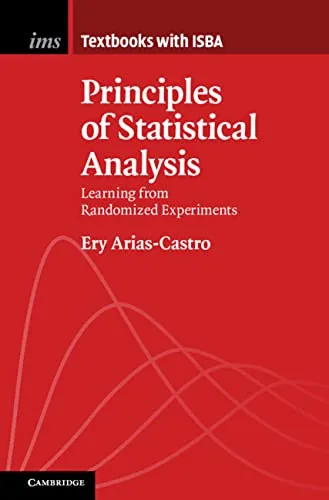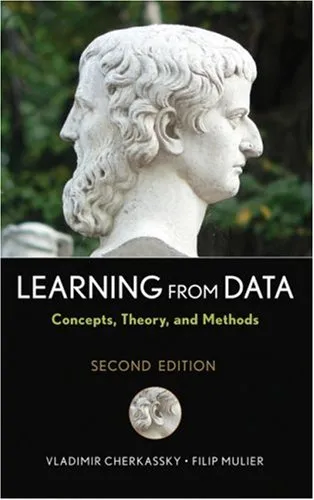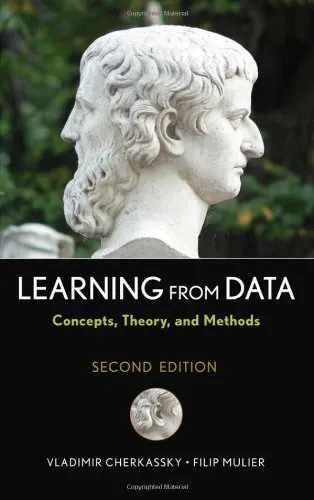Principles of Statistical Analysis: Learning from Randomized Experiments (Institute of Mathematical Statistics Textbooks)
4.3
Reviews from our users

You Can Ask your questions from this book's AI after Login
Each download or ask from book AI costs 2 points. To earn more free points, please visit the Points Guide Page and complete some valuable actions.Related Refrences:
Introduction
Welcome to the structured world of statistical analysis with Principles of Statistical Analysis: Learning from Randomized Experiments. Designed as a part of the prestigious Institute of Mathematical Statistics Textbooks series, this book offers an intricate dive into the methodologies, principles, and application of statistical analysis within the sphere of randomized experiments. As a keystone for students, researchers, and professionals alike, its aim is to build a solid foundation in understanding how data is used to derive meaningful conclusions in various experimental settings.
Detailed Summary of the Book
The book embarks on a journey through the core principles of statistical analysis, starting with an overview of randomization and its historical significance. By emphasizing the importance of controlled experiments, it sketches the landscape of modern statistical methods used for systematic investigation. Each chapter integrates theory with practical examples, carefully aligning with real-world scenarios to engage the reader from a scholarly and practical standpoint.
Delving into various experimental designs, the book discusses their respective strengths, weaknesses, and suitable applications. You'll find discussions on completely randomized designs, block designs, factorial experiments, and more. These designs are meticulously explored to showcase how statistical efficiency and interpretability can be maximized. Emphasis is given to the proper execution and analysis of these designs through statistical software.
Finally, the book closes with reflections on ethical considerations and the future of experimental research, urging a thoughtful approach to statistical practice. This section is vital for maintaining integrity and trustworthiness in scientific endeavors.
Key Takeaways
- Understand the underlying principles and significance of randomization in statistical experiments.
- Get to know various experimental designs and how to choose the most suitable one for your research.
- Learn practical approaches to data analysis with the help of comprehensive examples and case studies.
- Explore ethical considerations and ensure the integrity of your experimental research.
Famous Quotes from the Book
"The art of undertaking an experiment resides in its careful design, ensuring that the maximum amount of information can be extracted from the minimum amount of effort."
"Randomization isn't just a technique—it's a perspective shift in approaching statistical validation, fostering a fair and unbiased analysis."
Why This Book Matters
In an era where data-driven decision-making is paramount, Principles of Statistical Analysis becomes a vital resource. It bridges the gap between complex statistical theory and practical application, enabling readers to execute statistically sound experiments. This book is essential for a world progressively leaning on empirical evidence, equipping readers with tools for effective analysis amidst varying levels of uncertainty and noise in experimental data.
Moreover, it instills a sense of responsibility in conducting research, ensuring ethical precedents are maintained alongside statistical integrity. By fostering a deeper understanding of experimental statistics, this book paves the way for innovative exploration and robust conclusions in diverse fields ranging from medicine to social sciences.
Free Direct Download
You Can Download this book after Login
Accessing books through legal platforms and public libraries not only supports the rights of authors and publishers but also contributes to the sustainability of reading culture. Before downloading, please take a moment to consider these options.
Find this book on other platforms:
WorldCat helps you find books in libraries worldwide.
See ratings, reviews, and discussions on Goodreads.
Find and buy rare or used books on AbeBooks.
1327
بازدید4.3
امتیاز0
نظر98%
رضایتReviews:
4.3
Based on 0 users review
Questions & Answers
Ask questions about this book or help others by answering
No questions yet. Be the first to ask!













